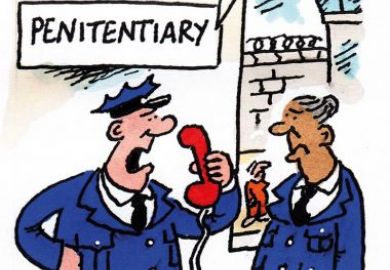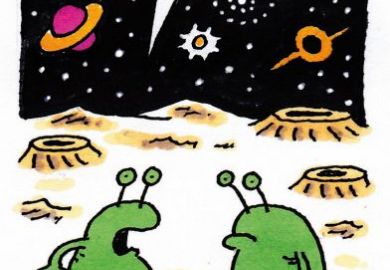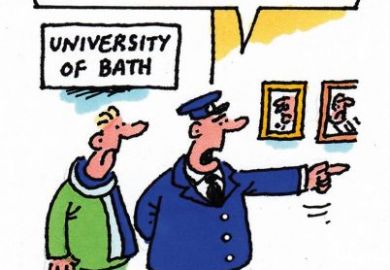
Need a recipe for a perfect Twitter storm? Start with some Toby Young, add the University of Oxford and climate change activist Greta Thunberg, stir in a mention of the Eurovision Song Contest and sprinkle with controversy about privilege. Et voilà! Predictably, social media went into overdrive after the right-leaning commentator retweeted a story from Guido Fawkes’ blog about how the teenage campaigner was the “privileged” daughter of a Swedish Eurovision star (although not one from Abba, we hasten to add). This led to a plethora of Twitter users reminding the world that Mr Young got into Oxford after a call from his father – a Labour peer – helped to clear up some confusion about whether he had a place despite missing his grades. Mr Young later insisted that he was not calling Ms Thunberg out for being privileged but merely retweeting an interesting article that he had seen.
Whatever Ms Thunberg says, we might not need to worry about impending doom because a scholar at Oxford might already have hit on our salvation: alien-human hybrid life forms. According to an article in the Oxford Student, subsequently reported by The Times, a lecturer at the university’s Oriental Institute has a theory that aliens may be interbreeding with humans in a bid to save Earth from climate disaster. Young-hae Chi, who according to the reports wanted to debate the subject at the Oxford Union but had his proposal rejected, outlined his theories in a lecture at a conference for alien abduction theorists in 2012. He has now also written a book in Korean on the subject, Alien Visitations and the End of Humanity, the reports say.
An academic said to have coined the phrase “sleeping beauties” for papers that receive lots of citations after lying dormant for many years has had a submission turned down by a journal that believes the use of the phrase is inappropriate. According to The Guardian, Ton van Raan, professor emeritus of quantitative science studies at Leiden University, was told by the Journal of the Association for Information Science and Technology that use of metaphors was “complicated by socio-cultural factors and may not adequately translate across borders”. It said other academics had used the metaphor to “introduce the notion of the chastity of the sleeping beauties, in terms of the number of articles that awaken the dormant article” and there were other examples of “citation trajectories” being “sexualised”. But Professor van Raan said that even if some uses of the metaphor had been problematic, a total ban was wrong. “I was always sober with the metaphor,” Professor van Raan said. “There was the sleeping beauty, the prince. And that is it. No fantasies.”
The number of complaints considered by the higher education ombudsman in England and Wales has gone up by a fifth, according to latest figures. In its annual report, the Office of the Independent Adjudicator for Higher Education says it received 1,967 new complaints in 2018, compared with 1,635 in 2017. The rise is bound to spark suggestions that student consumerism is behind some of the rise, with the OIA itself saying in its report that students could be becoming “more aware of their consumer rights and the ‘cost’ of their studies”. “Students often link complaints about poor quality teaching or lack of facilities to their tuition fees,” the OIA report adds. However, Sarah Liddell, head of the leadership office at the OIA, said it was “quite difficult to isolate any particular cause” for the increase, with some complaints arising from last year’s industrial action by university staff over proposed changes to pensions.
A Japanese university says it will not employ staff who smoke unless they promise to quit after taking up the post. The Asahi Shimbun reported that the move by Nagasaki University is apparently a first for a state-run university. “Our job as a university is to nurture human resources, and we feel obliged to discourage people against smoking as some companies have begun not recruiting smokers,” said Shigeru Kono, the university’s president. The policy comes after the institution released a “no-smoking road map” that included removing smoking areas on campus. From next April, Nagasaki will ban teachers and students from carrying cigarettes or lighters.
Register to continue
Why register?
- Registration is free and only takes a moment
- Once registered, you can read 3 articles a month
- Sign up for our newsletter
Subscribe
Or subscribe for unlimited access to:
- Unlimited access to news, views, insights & reviews
- Digital editions
- Digital access to THE’s university and college rankings analysis
Already registered or a current subscriber?





